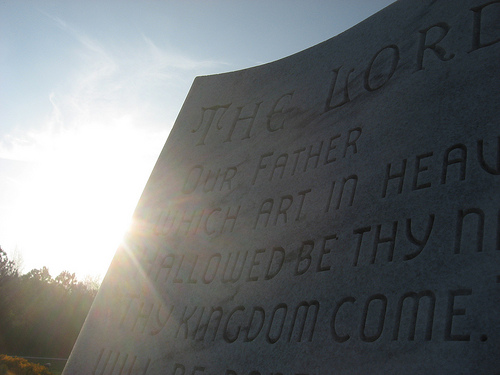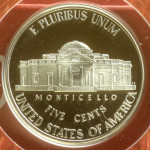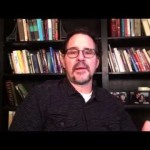We run our website the way we wished the whole internet worked: we provide high quality original content with no ads. We are funded solely by your direct support. Please consider supporting this project.

Reflecting on the Lord’s Prayer
Jesus begins the instruction on prayer (Matthew 6:9-13) by telling his disciples to pray for the Father’s name to be “hallowed,” for his kingdom to come, and for his will to be established on earth as it is in heaven. He is, in effect, telling them to pray for the fulfillment of everything his ministry, and their ministry, is about—glorifying the Father by bringing about the rule and will of God on earth. Such a prayer assumes, however, that the will of God is not being carried out in this present world.
This prayer, then, is a prayer for change, and the change involves moving from a world in which the Father’s name is not honored, his will is not done, and his rule not established, into a world in which these things are as they should be.
This petition is in essence a petition for the arrival of the eschaton, and it has decisive warfare overtones. Jesus is telling his disciples to pray that God’s eschatological reign, effected by the final overthrowing of his cosmic foes, the present world rulers, will be accomplished now.
The same eschatological and warfare significance is found in the petition of the Father to “give us this day our daily bread.” This passage may be implying that the disciples are to rely utterly upon the Father and to trust him for their daily bread as they work to bring about his kingdom rule. However the word “daily” is better translated “tomorrow.” The disciples are being told to pray for the “bread of tomorrow,” referring to the banquet feast planned for the eschaton. It is another way of asking for God’s rule to be established now.
Two points need to be made concerning the next clause, the teaching that we are to ask the Father: “Forgive us our debts, as we also have forgiven our debtors.” First this is not a type of quid pro quo declaration. Jesus is reminding the disciples of their need to forgive in the light of the Father’s forgiveness. He is not teaching the disciples to ask God to condition and proportion his forgiveness on theirs.
Second, the petition is a request that looks ahead to the final judgment. The fatherhood of God in the New Testament is associated with the willingness to forgive, and the full manifestation of this fatherhood, and thus of God’s forgiveness, is understood eschatologically.
The eschatological warfare theme comes out in an especially strong way in the final petition of the prayer: “do not bring us to the time of trial, but rescue us from the evil one.” The word “trial” speaks not of moral “temptation” (cf. NIV) but of trials and hardships. The disciples are not, therefore asking God not to play the role of “the tempter,” something God could never be suspected of doing. They are, rather, asking God to protect them from hardships that accompany their kingdom work.
From whom would they expect such hardships? The closing line of the prayer makes it explicit: “rescue us from the evil one.” Jesus knew that carrying out the Father’s kingdom work would evoke attacks from Satan and his army.
We must understand Jesus to be teaching his disciples to pray not just for protection from satanically inspired trials and hardships in general, but even more fundamentally for deliverance from the fiery end-time trial, or at least for aid in remaining faithful during its terror.
—Adapted from God at War, pages 218-220
Image by cmcgough via Flickr.
Category: General
Tags: Eschatology, Jesus, Kingdom Living, Prayer, Spiritual Warfare
Related Reading

The Bible, Government and Christian Anarchy
This “essay” contains my informal reflections on biblical texts that I believe support what some call “Christian Anarchy.” Consider it a very rough draft of a future project. I’ll argue that Kingdom people are called to pledge their allegiance to God alone, not to any nation, government, political party or ideology. Because Kingdom people are…

A Revelation of Beauty Through Ugliness
In my recent post, Getting Honest About the Dark Side of the Bible, I enlisted no less an authority than John Calvin to support my claim that we need to be forthright in acknowledging that some of the portraits of God in the OT are, as he said, “savage” and “barbaric.” What else can we…

How Much Is Enough?
Richard Beck over at Experimental Theology wrote a reflection on insights he gained from the book How Much is Enough?: Money and the Good Life by Robert Skidelsky and Edward Skidelsky. He points out how the advent of money changed the way we view our needs and made it easier to hoard without noticing it. It’s a…

Does God Inflict Physical Disabilities?
In Exodus 4, we find Moses claiming that he could not be used by Yahweh to get the children of Israel out of Egypt because he was “slow of speech and tongue.” To this Yahweh replies, “Who gave human beings their mouths? Who makes them deaf or mute? Who gives them sight or makes them…

Hearing and Responding to God: Part 1
A reader contacted Greg asking about making “right decisions” assuming an open future and in light of the fact that God seems to rarely speak clearly. In this first response, Greg acknowledges that even with the best of intentions, our decisions can have outcomes that are unexpected even to God! How can we move forward…

The Life and Death of MLK and What it Might Have to Say to Us
Tony Fischer via Compfight Here is an EXCELLENT reflection from Jonathan Martin in answer to a question that was posed to him on how he reconciles his rejection of the politics of this world with the social justice work of MLK. This is a must read. From the article: So to come to the question,…
